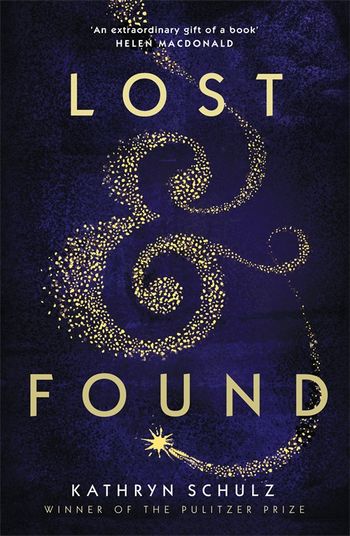What it means to lose, and to find
+ Artificial wombs, Explaining things, Mushroom Color Atlas (#379)
🅰️ Buy a Premium Membership for $30/year (25% off today), or
🅱️ Become a Friend of the Filet for $60/year (comes with a free membership for a friend of yours)
Longer version:
The Weekly Filet is completely independent and ad free — it exists thanks to readers who support it with a paid membership.
As a member, you get the extended version of the newsletter every week (5 recommendations + instant-gratification links), plus guest-curated special deliveries once a month.
If you value the work I'm doing here, I'd appreciate your support. It really makes a difference.
Is it worth it? I think so. As do the 91% of the members who renew their membership after a year.
🅰️ Buy a Premium Membership for $30/year (25% off today), or
🅱️ Become a Friend of the Filet for $60/year (comes with a free membership for a friend of yours)
1. Lost & Found
This week, I fell in love with a new memoir by Kathryn Schulz. Centered around the death of her father and meeting her future wife, she explores the universal themes of losing and finding. Profound and beautifully written, making me pause and admire a sentence every few pages. Some of my favourites:
- We are never smaller and the world never larger than when something important goes missing.
- In the microdrama of loss, we are nearly always both villain and victim.
- To be bereft is to live with the constant presence of absence.
- My happiness was so enormous it was like an entire third person standing there.

2. Computer Scientist Explains One Concept in 5 Levels of Difficulty
You only truly understand something if you can explain it to a child, they say. Our inquisitive daughter now makes me painfully aware of this almost daily. Wired is taking this challenge one step further, in their long-standing series «5 Levels of Difficulty». In this recent episode, a computer scientist explains the concept of a zero-knowledge proof to five people, from a 10-year-old all the way to a fellow expert. Fascinating.
3. Womb for improvement
What if bearing a child became optional, with artificial wombs as an alternative? Don't expect any definitive answers from this article, but rather food for thought on the many layers of questions the topic provokes.

4. Animals That Infect Humans Are Scary. It’s Worse When We Infect Them Back.
It's long been known that the way humans treat animals is an invitation for viruses to come haunt us. This story on the looming threat from Mink farms makes it as tangible as it can be. If you don't feel like reading any more stories about deadly viruses — still click and have a look at the illustrations throughout the story, they are gorgeous. (If, on the other hand, you can't get enough of deadly viruses, Mike Davis' «The Monster at Our Door» is the book to read).

5. Sul Sul — the story of the Simlish language
Remember Sims, that computer game from the early 2000s that let you create virtual human beings and follow their everyday lives? Here's a podcast episode on one aspect of the game I wasn't aware of: Sims had their own made-up language, which soon turned into a phenomenon of its own, with pop songs being re-recorded in Simlish. What makes it especially interesting: Nobody has control over the rules of the language, it's «a language from no one for everyone».

What else?
- A thing of beauty: Mushroom Color Atlas
- Beware of these 4 hidden events in your calendar.
- Sign of the times: Sierra Leone's capital Freetown has hired a Heat Officer.
- More than two thirds of all refugees worldwide come from just five countries.
- An old map, showing the true size of Antarctica.
- 🎧 Home, a new song by Hrishikesh Hirway
Thanks for your time, I hope you found something to spend even more of your time with. Have a nice weekend. See you next Friday!
— David 👋
PS: If you love the Weekly Filet, but hate scrolling back to the top of this email:
🅰️ Buy a Premium Membership for $30/year (25% off today), or
🅱️ Become a Friend of the Filet for $60/year




